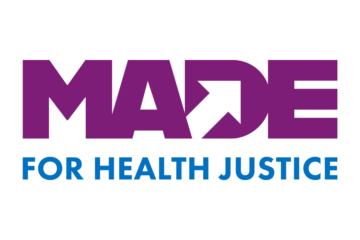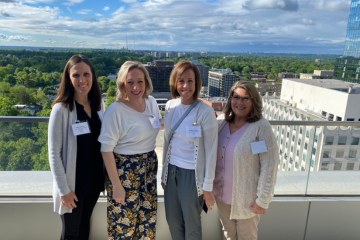
Some geniuses make pamphlets to hand out to their families. For those of us in the field of public health (and without pamphlets), we may get a special set of tough questions from our family members who are unfamiliar with our field, what we do, or why we do it. A blessing but a curse of working in public health is that it allows us to do many different things, work at different types of organizations, and work on issues that most people don’t often associate with individual health.
We’ve struggled ourselves to try to talk to others about public health and what we do. How can we convey that public health includes direct services like vaccinations and inspecting restaurants but also working on affordable housing policy and researching the health effects of climate change? To try to answer those tough questions from your family, here are some suggestions.
“What is public health?”
When the de Beaumont Foundation asked public health professionals for the toughest questions they get in their work, this one stood out. It’s hard to describe work that encompasses the community conditions of health, and people often default to thinking about healthcare and individual responsibilities when they hear the term “public health.” Through the PHRASES project, we researched ways to effectively frame and answer this question. An answer like the following has some elements you might want to try:
“Public health is what we build together as a society when we shape our communities so everyone can achieve optimal health. The health of our community is like a building — it depends on a strong and stable foundation. Things like quality education, safe and affordable housing, safe drinking water, and access to healthy foods can lead to positive outcomes for health and well-being for everyone. A solid foundation gives everyone a chance to achieve their best possible health.”
“What can you do with a public health degree?”
Surely we’re not the only ones who get this question. When your field is as interdisciplinary and evolving as public health, this question may cause more anxiety than it would for other students or professionals. Public health is about protecting, promoting, and improving the health of populations and achieving that mission requires many disciplines, including:
- Biostatistics
- Epidemiology
- Psychology
- Sociology
- Anthropology
- Toxicology
- Environmental science
- Biology
- Chemistry
- Engineering
- Occupational health
- International relations
- Nutrition
The list goes on and on. With so many specialties needed to ensure health and well-being, it’s no wonder it’s difficult to tell people what your careers goals are. In addition, creative and innovative solutions to improve the health of populations has changed where public health professionals can work. According to a study from Columbia University’s Mailman School of Public Health, public health graduates are increasingly working outside of government, with more and more students securing jobs in the for-profit sector. So how do you answer this question? Tell your friends and family: “My degree in public health gives me almost limitless options. I could work in academia, government, non-profit, or for-profit sectors to improve health. In fact, here’s a list of 40 emerging leaders in public health and what they do.”
“So are you a doctor?”
Public health students and professionals get this question because the word “health” is in the name and most people often associate health with medicine. But while doctors and public health professionals are both try to solve health problems, they use different approaches to improve health. Doctors diagnose and treat individual patients, usually with biological interventions. Public health professionals prevent disease through social and behavioral interventions at a community level.
When explaining the difference between public health and medicine, try this: “Doctors and public health professionals are both concerned that heart disease is the leading cause of death in the United States. Doctors improve this by diagnosing heart disease early, prescribing drugs to lower cholesterol levels and blood pressure, and, possibly, performing surgeries to improve blood flow to the heart. Public health professionals improve this by passing and enforcing policies to improve nutrition standards, designing walkable communities, and creating personalized campaigns to help people from all walks of life quit smoking (Fresh Empire, This Free Life, and Tips from Former Smokers).”
“What do you do all day?”
Depending on your job, this question could have a thousand answers. Also, you are competing with mental models of what health is, which often include stock images of people in white coats with stethoscopes. So it can be helpful to build the big picture of your work first to put it in context, and then connect your work to the big picture. Here is an example of how Rachel described her work with child care centers promoting environmental health:
The Context: “I worked to protect children from toxic chemicals at their day care centers because we know that these chemicals harm their health and development. All children deserve to have a healthy and safe day care center, and taking even small and low-cost steps can improve the health of child care centers and children.”
Connection to Your Work: “So we helped child care providers identify and remove hazards like lead paint and pesticides and promoted healthy practices such as prohibiting vehicles from idling nearby to improve air quality.”
Give Us Your Ideas
This isn’t an exhaustive list of the tough questions you may get this holiday season, but we hope it’s helpful. What’s the toughest question you get, and how do you answer? Let us know by email or on Twitter at @deBeaumontFndtn.




